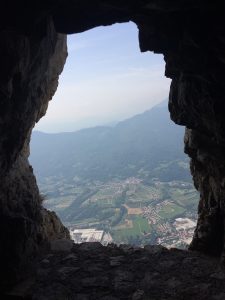Dewey and Friere
 Two readings were part of my daily reading today – Chapter 7: The Democratic Conception of Education in Democracy and Education by John Dewey and Chapter 2 in Pedagogy of the Oppressed by Paolo Freire and Myrna Bergman Ramos. While both are readings I’ve done before, in past education courses, both were a challenging read, with many recursions, track-backs and re-reading. Here are the four sentence summaries for each.
Two readings were part of my daily reading today – Chapter 7: The Democratic Conception of Education in Democracy and Education by John Dewey and Chapter 2 in Pedagogy of the Oppressed by Paolo Freire and Myrna Bergman Ramos. While both are readings I’ve done before, in past education courses, both were a challenging read, with many recursions, track-backs and re-reading. Here are the four sentence summaries for each.
Freire, P. (2009). From pedagogy of the oppressed. Race/ethnicity: multidisciplinary global contexts, 2(2), 163-174.
Friere promotes knowledge creation as invention, reinvention and inquiry, as a means to combat the oppressive banking model of education, which describes students as receptacles and teachers are depositors of information. He views students and teachers as partners and co-creators through the application of pedagogical approaches of problem solving and dialogic reciprocity. As students and teachers unveil reality, they become reflective in action and critical intervenors, leading them to push for transformation in education. Friere indicates that ‘problem posing education’ is directed toward the humanization of education, a means to overcome authoritarianism with emancipatory practices, and is “revolutionary futurity” through the interplay of the opposites ‘to be’ and ‘becoming’, “permanence and change” (p. 172).
Dewey, J. (1916). Chapter 7: The democratic conception in education. In Democracy and Education. Pennsylvania: Penn State, 85-104.
Dewey sets out to “make explicit the differences in the spirit, material, and methods of education as it operates in different types of community life” (p. 9.87) Dewey delves into the democratic ideal, the Platonic, individualistic, and institutional philosophies, and how these social structures impact the vision for education. Dewey posits two measure of social life: first, “the extent in which the interests of a group are shared by all its members”, and second, “the fullness and freedom with which it interacts with other groups” (p. 9.105). Participation, equity, flexibility, revision, interaction, diversity, agency, relationships, security and order are all concepts inherent in Dewey’s notion of democratic education.
While these four sentence summaries provide a glimpse into these readings, they are not the sum total of all the notes, quotes and interesting ideas I’ve pulled from these texts.
